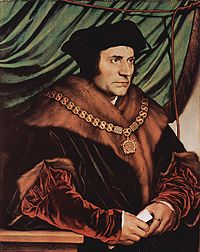|
Poets
Antonio Veneziano (1543-1593)
Antonio Veneziano (Monreale, 1543 - Palermo, 19 August 1593) was a Sicilian poet who wrote mainly in Sicilian. He is considered among the greatest poets who wrote in Sicilian, which include Giovanni Meli, Domenico Tempio and Nino Martoglio. He is perhaps the first major figure in Sicilian literature following the Sicilian School which predates him by three centuries. During his life time, he was well known for his poetry both within Sicily and far beyond. He also wrote in Italian and Latin.
Veneziano was a contemporary of Cervantes (1547 - 1616) with whom he shared a cell after being captured by Barbary pirates and held for ransom. We know that Cervantes and his brother had been captured in 1575. Cervantes reportedly said that Veneziano had earned the keys to Paradise with his poetry collection entitled Celia. In both Italian and Sicilian "Celia" means jest or joke but in Sicilian it can also refer to a woman who has been foiled.
Cervantes (1547-1616)
Juan Martínez de Jáuregui y Aguilar, Miguel de Cervantes, c.1610

Gabriello Chiabrera 1552-1638
A poet, born at Savona, Italy, 8 June, 1552, died there 1638. When nine years of age he went to Rome to live with an uncle and there received his early education. He attended lectures on philosophy at Jesuits' College until his twentieth year. When a youth at Rome, he was on familiar terms with the learned men of the day, and favours came to him unsought from the Dukes of Savoy, Mantua, and Florence, Pope Urban VIII and the Republic of Genoa. He spent most of his time in Florence and Genoa. When fifty years of age he married. He is said to have written this distich to be inscribed over his tomb:
Amico,
Io vivendo cervava il conforto per lo Monte Pernasso.
Tu meglio consigliato, fa di cercarlo sul Monte Calvario.
Shakespeare 1564-1616
William Shakespeare (baptised 26 April 1564; died 23 April 1616)[a] was an English poet and playwright, widely regarded as the greatest writer in the English language and the world's pre-eminent dramatist.[1] He is often called England's national poet and the "Bard of Avon".[2][b] His surviving works, including some collaborations, consist of 38 plays,[c] 154 sonnets, two long narrative poems, and several other poems. His plays have been translated into every major living language and are performed more often than those of any other playwright.[3]
Shakespeare was born and raised in Stratford-upon-Avon. At the age of 18, he married Anne Hathaway, with whom he had three children: Susanna, and twins Hamnet and Judith. Between 1585 and 1592, he began a successful career in London as an actor, writer, and part owner of a playing company called the Lord Chamberlain's Men, later known as the King's Men. He appears to have retired to Stratford around 1613, where he died three years later. Few records of Shakespeare's private life survive, and there has been considerable speculation about such matters as his physical appearance, sexuality, religious beliefs, and whether the works attributed to him were written by others.[4]
Shakespeare produced most of his known work between 1589 and 1613.[5][d] His early plays were mainly comedies and histories, genres he raised to the peak of sophistication and artistry by the end of the sixteenth century. He then wrote mainly tragedies until about 1608, including Hamlet, King Lear, and Macbeth, considered some of the finest works in the English language. In his last phase, he wrote tragicomedies, also known as romances, and collaborated with other playwrights.
References
1. ^ Greenblatt 2005, 11; Bevington 2002, 1–3; Wells 1997, 399.
2. ^ Dobson 1992, 185–186
3. ^ Craig 2003, 3.
4. ^ Shapiro 2005, xvii–xviii; Schoenbaum 1991, 41, 66, 397–98, 402, 409; Taylor 1990, 145, 210–23, 261–5
5. ^ Chambers 1930, Vol. 1: 270–71; Taylor 1987, 109–134.
6. ^ Bertolini 1993, 119.
Fudduni c1600-1670
Petru Fudduni, as he preferred being called, was born Pietro Fullone in Palermo and was very popular during his lifetime. Although his date of birth is unknown we know that he died on March 22, 1670. He is mentioned by Giuseppe Cucchiara in Folklore Italiano, and by Giuseppe Pitrè in volume 3 of the Biblioteca Siciliana. A list of his works is also found in Mira's Dizionario Bibliografico Siciliano. These examples were taken from "Petru Fudduni: Puisì e Cuntrasti in Sicilianu", Illustrazioni di Mario Viola, Reprint s.a.s., 86 pp., Palermo.
The word "fudduni" has a number of meanings. It can refer to the deep footprint that beasts of burden leave, or used as "granciu fudduni" it means a mistake, or it can mean to rush along without consideration of others. Beyond national pride, I suspect that Petru Fudduni enjoyed the whimsy associated with the Sicilian version of his name.
La Fontaine 1621-95
mportant contacts in Paris, where he was able to attract patrons and spend his most productive years as a writer. He is best known for his Fables (1668 – 94), which rank among the masterpieces of French literature. Comprising some 240 poems, they include timeless tales about simple countryfolk, heroes of Greek mythology, and the familiar animals of fables. Their chief theme is the everyday moral experience of humankind. His many lesser works include The Loves of Cupid and Psyche (1669), notable for its lucid, elegant prose. He was elected to the Académie Française in 1683.
|


